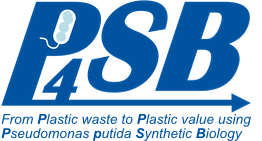"Biodegradable Plastic Blends Create New Possibilities for End-of-Life Management of Plastics but They Are Not a Panacea for Plastic Pollution" was written by Tanja Narancic, Steven Verstichel, Srinivasa Reddy Chaganti, Laura Morales-Gamez, Shane T. Kenny, Bruno De Wilde, Ramesh Babu Padamati, and Kevin E. O’Connor. It was first published in Environmental Science & Technology 2018 52 (18) on 29th of August 2018. Congratulations to all involved!
Abstract:
Plastic waste pollution is a global environmental problem which could be addressed by biodegradable plastics. The latter are blended together to achieve commercially functional properties, but the environmental fate of these blends is unknown. We have tested neat polymers, polylactic acid (PLA), polyhydroxybutyrate, polyhydroxyoctanoate, poly(butylene succinate), thermoplastic starch, polycaprolactone (PCL), and blends thereof for biodegradation across seven managed and unmanaged environments. PLA is one of the world’s best-selling biodegradable plastics, but it is not home compostable. We show here that PLA when blended with PCL becomes home compostable. We also demonstrate that the majority of the tested bioplastics and their blends degrade by thermophilic anaerobic digestion with high biogas output, but degradation times are 3–6 times longer than the retention times in commercial plants. While some polymers and their blends showed good biodegradation in soil and water, the majority of polymers and their blends tested in this study failed to achieve ISO and ASTM biodegradation standards, and some failed to show any biodegradation. Thus, biodegradable plastic blends need careful postconsumer management, and further design to allow more rapid biodegradation in multiple environments is needed as their release into the environment can cause plastic Pollution.
Want to know more? Find this article on our Publications Page or via its DOI!
